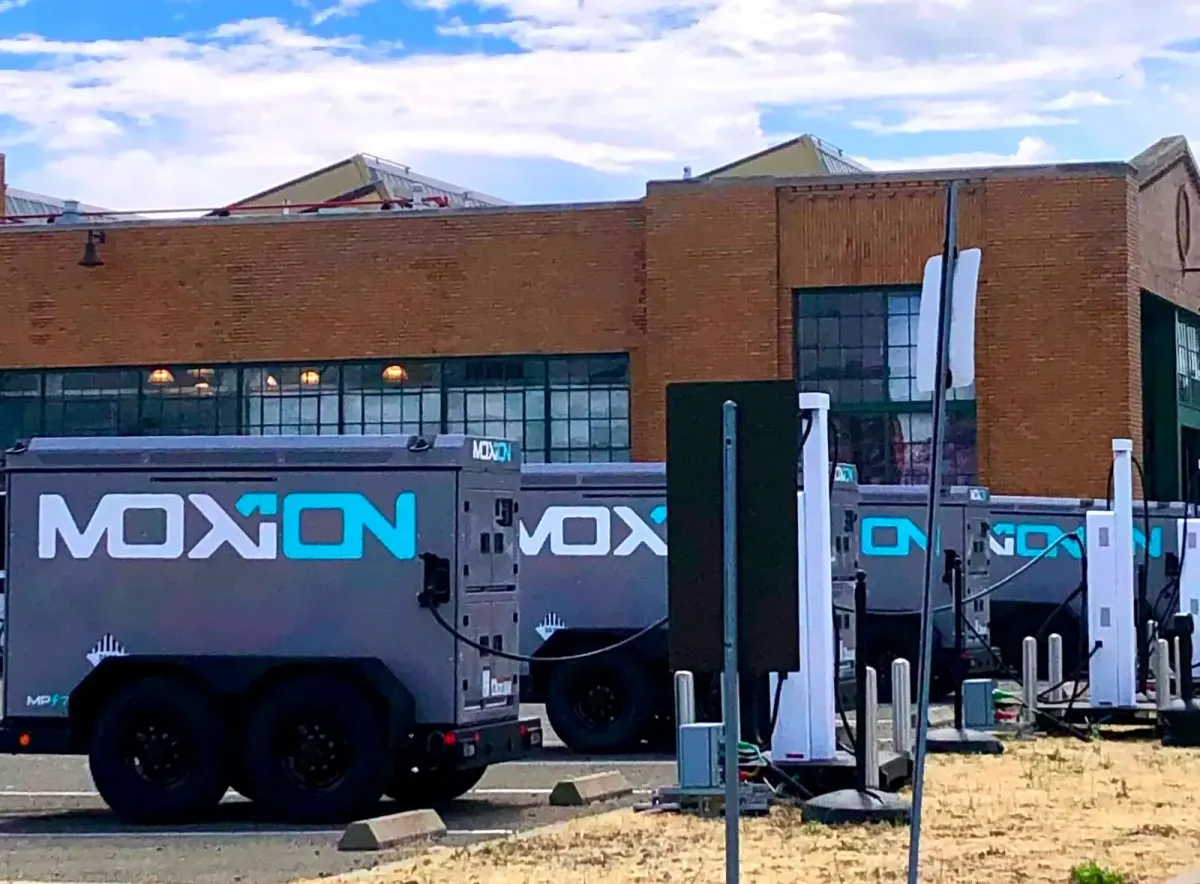

Richmond City Council’s October 1 agenda covers a wide range of topics, including the Richmond Green-Blue New Deal’s plan to create 1,000 clean-energy jobs, an audit addressing challenges in the city’s paratransit program, and more information about a $50,000 Arts Corridor Project.
The council will also consider renaming the Virginia Playlot and analyze findings from the city’s latest community survey. The survey highlights rising satisfaction with quality of life as well as persistent concerns over safety and economic stability.
Report on RGB New Deal Opportunities
The agenda includes a presentation on the 347-page Richmond Green-Blue New Deal Opportunities Report and 62-page Implementation Plan. Richmond initiated the Richmond Green-Blue New Deal (RGBND) with a vision for a “five zero” future: zero-carbon grid, transportation, and buildings, zero waste, and zero wasted water in 2021. The RGBND Opportunities Report outlines a plan to create 1,000 green-blue jobs and accelerate Richmond’s transition to a clean-energy and zero-waste economy.
Policies from the State of California, such as Senate Bill 100, are driving the push toward 100 percent renewable energy by 2045. According to the report, Richmond has approximately 51,000 total jobs, including 2,308 Green Jobs.
Chevron, Richmond’s largest employer, had 3,264 total employees in 2021 and a $21 billion profit last year. According to the report, federal data shows 1,600 local jobs in fossil fuel industries, a 44 percent increase since 2010. This number does not include jobs within supporting divisions of large fossil fuel companies like Chevron or supporting businesses in other industries.
The report emphasizes a Just Transition, ensuring workers from fossil fuel companies aren’t left behind.
These projects will train workers, including youth and people with criminal records, to prepare for future green careers. After nine months of community engagement, the report identifies potential projects based on economic forecasts and environmental policies.
This report also provides insights about the local economy for developing Richmond's Green-Blue New Deal Workforce Development Plan. It draws from multiple sources, including workshops with the Safe Return Project, community-based organizations, stakeholder workshops, and a community survey.
Safe Return Project workshops showed that justice-involved individuals possess various skills that could be applied to green-blue jobs. They identified the types of support and resources needed to facilitate their reintegration into the workforce.
Community-based organizations facilitated community outreach activities and events and engaged an estimated 2,500 community members. CBOs included YES Nature to Neighborhood, Collaborising, The Watershed Project, Rubicon Programs, Rich City Rides, Richmond Community Foundation, and CoBiz Richmond.
Stakeholder workshops, including those with business, industry, union, and trade representatives, provided valuable insights into the Green-Blue New Deal plan's priorities, considerations, and concerns.
A survey was conducted to gather insights about the community’s vision, goals, and concerns related to the Green-Blue New Deal plan. Survey results showed that the top environmental and health concerns were air quality, blight and deterioration, insufficient access to healthy food options, and the need for more trees. Respondents identified job opportunities in education, entrepreneurship, engineering/tech, and healthcare as most needed in Richmond.
Battery manufacturing was one of the green-blue job projects that workshop participants were most interested in. Richmond battery companies SunPower and Moxion filed for bankruptcy this year and laid off hundreds of workers.
 Grandview IndependentLinda Hemmila
Grandview IndependentLinda Hemmila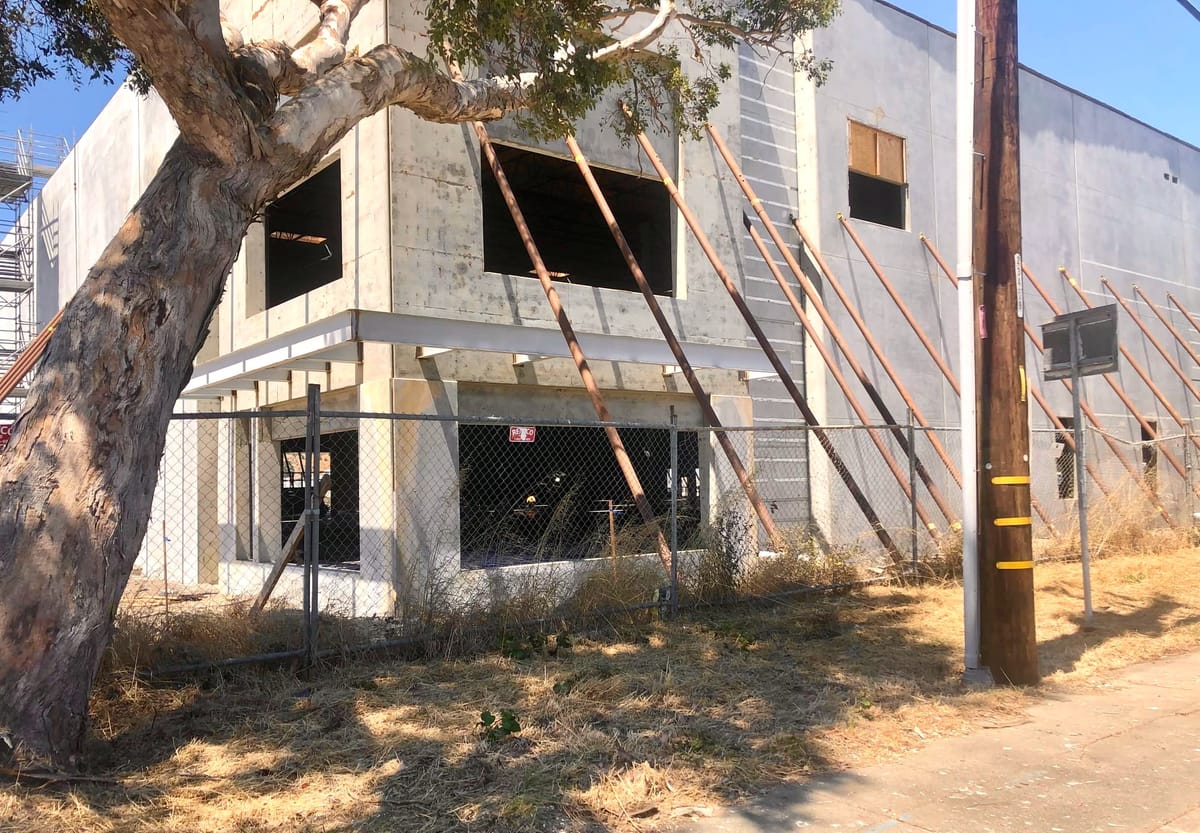
The report concludes by highlighting the importance of community engagement, job training, and support services for justice-involved individuals in successfully implementing the Richmond Green-Blue New Deal Workforce Development Plan.
Richmond Paratransit audit stresses staffing and maintenance issues
An audit of Richmond’s paratransit services reveals staffing shortages and mechanical issues with older vehicles. At the next council meeting, city officials will present solutions to address the program’s inefficiencies and rising costs.
The audit also showed older vehicles face mechanical issues while newer ones remain out of service. Contracted provider TransMETRO helps address staffing and vehicle shortages, yet the program operates with only 1.5 drivers and limited administrative staff, offering just eight to nine one-way trips per day.
The new Via software system is also underutilized due to insufficient staff training. Key audit takeaways include concerns over inaccurate program reports, misaligned administrative costs, and insufficient management oversight. The audit outlines 29 issues with recommendations for improvement across these areas.
City staff will provide a presentation regarding the audit and recommend reducing the cost pool amount allocated to the Richmond Paratransit Program by $351,000, increasing the General Fund’s obligation by the same amount. The cost pool refers to each department’s share of the services provided by the city.
Richmond has offered paratransit services for seniors and mobility-impaired adults for nearly half a century, evolving into three main programs. The R-Transit program provides door-to-door service using City-operated, specialized vehicles. A second program, launched in 2018, offers app-based, curb-to-curb trips for all seniors, with rides subsidized by the city through a Lyft partnership. A third contractor-operated service by TransMetro acts as a backup to R-Transit. Richmond also launched “Richmond Moves” in 2022, an on-demand shuttle service for all residents, funded by the TIRCP and ECIA, operated by Nomad Transit.
Arts Corridor Project Strategic Plan presentations
The council will receive presentations from the Ceres Policy Research team and the Richmond Renaissance team regarding the development of a $50,000 Arts Corridor Project Strategic Plan.
The Art Corridors include Macdonald Avenue from 41st Street to 6th Street and 23rd Street between Rheem Avenue and Cutting Boulevard.
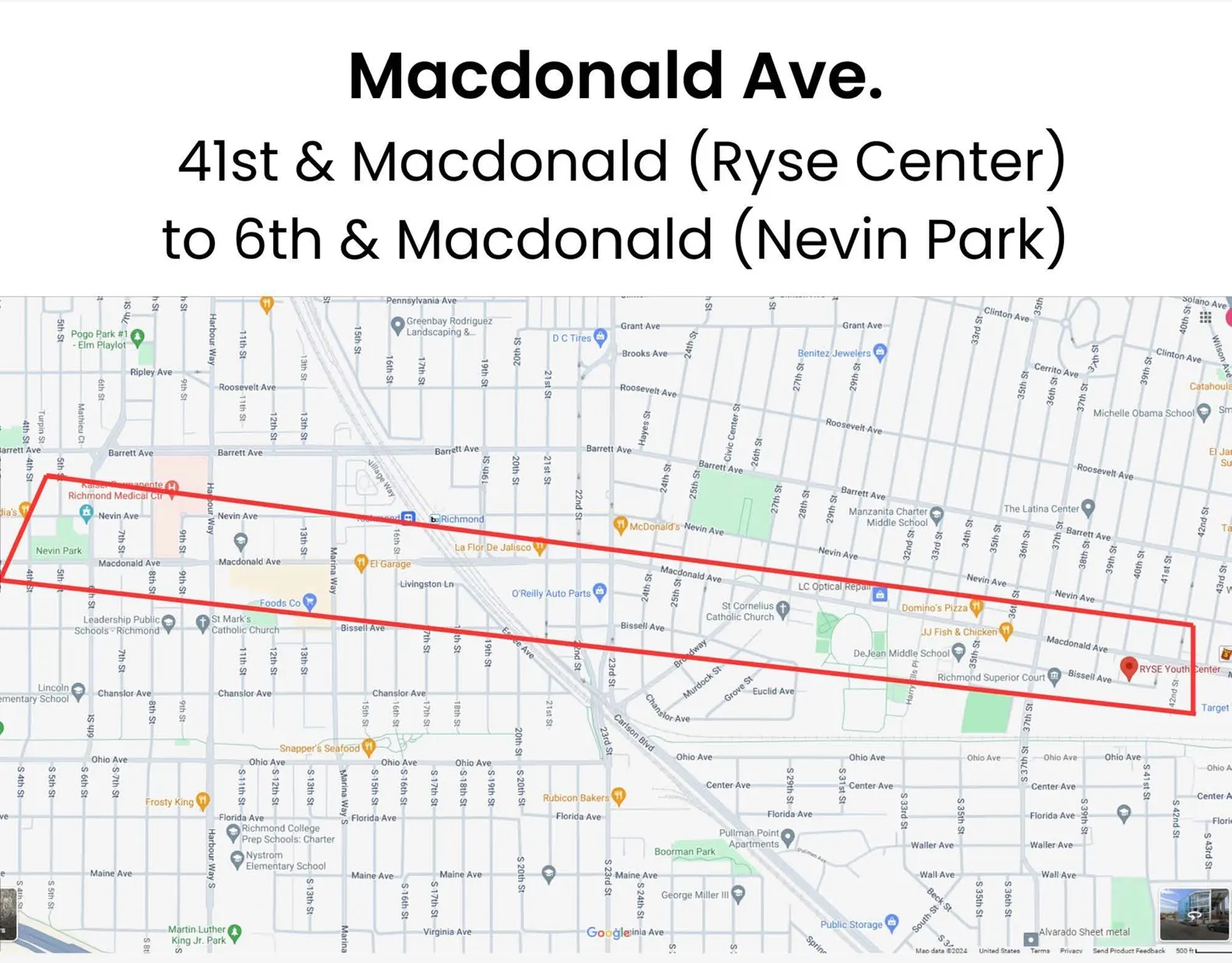
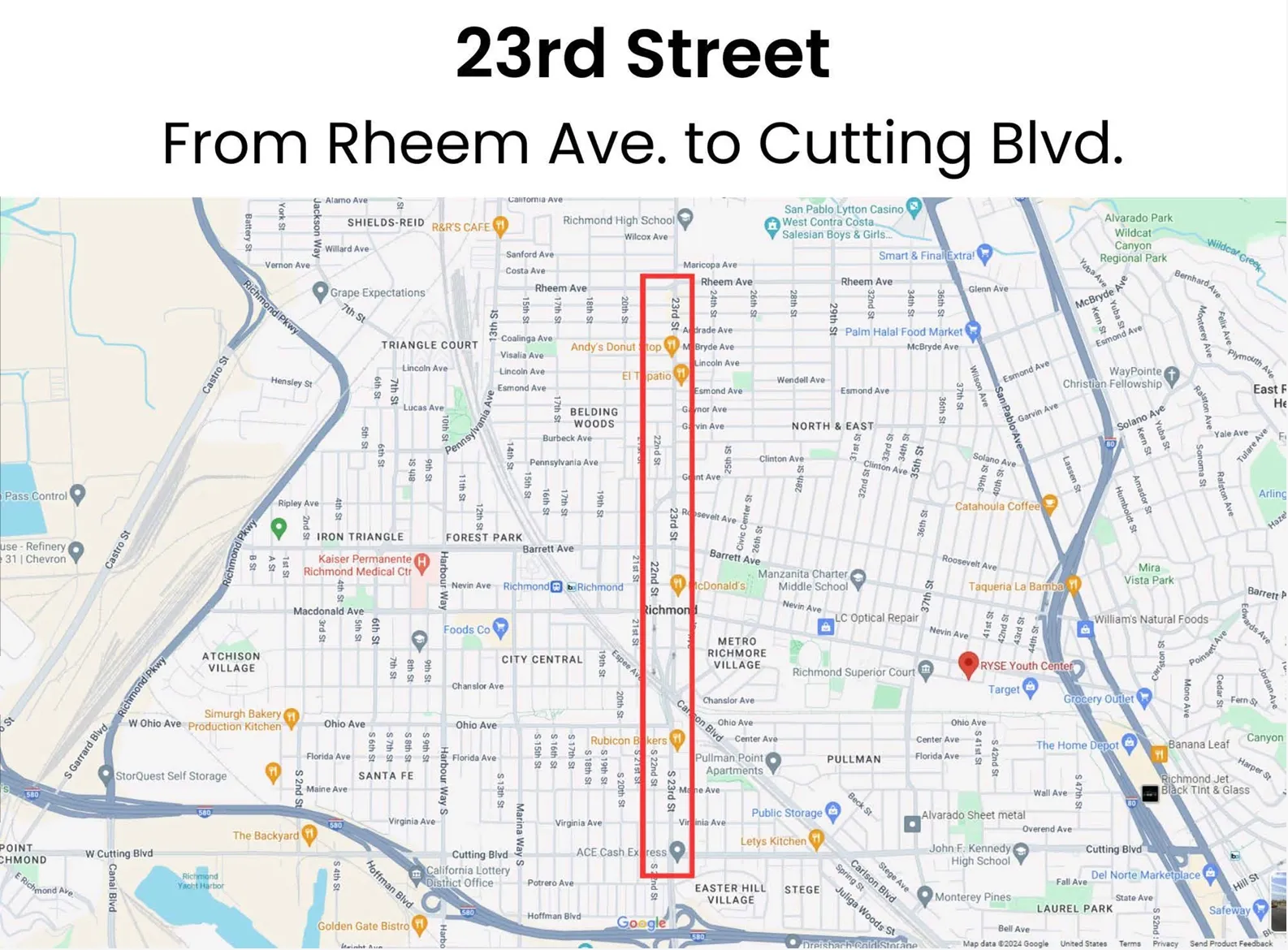
Richmond Renaissance is chaired by BK Williams and is located at the Richmond Progressive Alliance San Pablo Avenue office.
According to William’s cover letter, Richmond Renaissance is a collective of artists and community leaders with over 100 years of combined firsthand experience utilizing the transformative power of the Arts to heal, drive social change, preserve traditions, inspire creativity, and connect hearts across generations.
Critical Impact Consulting, led by Ratha Lai, will be the primary staff person responsible for this community engagement. Other Richmond Renaissance Steering Committee members include Bryan Alvarez, Florene Wiley, Jenny Balisle, Nava Mizrahhi, and Kyndelle Johnson.
Ceres Policy Research has been the outreach and capacity-building consultant for the Vallejo Arts Fund, supporting BIPOC artists and cultural bearers through a community-driven process. Kerby Lynch is the Ceres project manager, Aisha Canfield is the Strategic Planning and Analysis Lead, and Angela Irvine-Baker is the Facilitation and Capacity-Building Lead.
Richmond Community Survey shows quality of life improving, but safety concerns persist
Richmond residents have voiced growing satisfaction with the overall quality of life in their city. Yet, concerns about safety, particularly downtown, remain a key area for improvement, according to a new community survey.
The City of Richmond recently distributed its ninth community survey through the Polco/National Research Center’s Citizen Survey program. City staff will present the 2023 survey results and compare key findings to the city’s prior survey results.
The report revealed that nearly half of the city’s residents rated Richmond as a good or excellent place to live, marking a significant uptick from 2021. The overall quality of life ratings climbed from 32 percent in 2021 to 40 percent in 2023. Additionally, three-quarters of respondents indicated they plan to stay in Richmond for the next five years, and around 60 percent would recommend living in the city, numbers that held steady since the last survey.
Richmond doesn’t fare well compared to national benchmarks. Ranking 355th out of 358 communities as an excellent or good place to live and 374th out of 375 in terms of overall quality of life. Richmond was dead last in overall image or reputation at 352.
Safety, however, emerged as a focal point for the community. While 70 percent of residents reported feeling safe in their neighborhoods during the day, only 40 percent said they felt secure in the city’s downtown area. Confidence in protection from property crime dipped compared to 2021. Public view of law enforcement services also waned, with positive ratings for police and sheriff services falling from 46 percent in 2021 to 27 percent this year. A majority of residents, 94 percent, identified reducing crime and disorder as a top priority for the city’s future. Compared to the nationwide benchmark, Richmond ranks at or near the bottom of communities for safety and police services.
Economically, the survey highlighted that while Richmond’s outlook is improving, there are still challenges. Residents rated economic health as a priority, with 89 percent marking it as essential or very important, though only 16 percent rated the current economy as excellent or good.
Still, there were signs of progress. Richmond saw more favorable reviews for economic development and as a place to work, with 34 percent rating it positively, up from prior years. Additionally, one-third of respondents praised the quality of business and service establishments in the city.
Richmond’s Fiscal Year closes with $2.8 million surplus
Richmond’s FY 2023-24 financial report shows a $2.8 million surplus, driven by unspent funds and city contributions to post-employment benefits and CalPERS. The city council will discuss budget adjustments for the final quarter.
Richmond’s FY 2023-24 financial report shows a $2.8 million surplus, driven by unspent funds and city contributions to post-employment benefits and CalPERS. The city council will discuss budget adjustments for the final quarter.
Richmond family pushes to rename Virginia Playlot to honor local icon
The family of Mrs. Evans applied to the Recreation and Parks Commission on April 2, 2024, to change the name of the Virginia Playlot to Floria Evans Park. Mrs. Evans is a neighborhood hero who helped to raise and care for dozens of children who have grown up in that neighborhood. She was a mentor and a neighborhood icon. Her home is adjacent to the park, and she has resided there for 65 years.
 Richmond StandardStaff
Richmond StandardStaff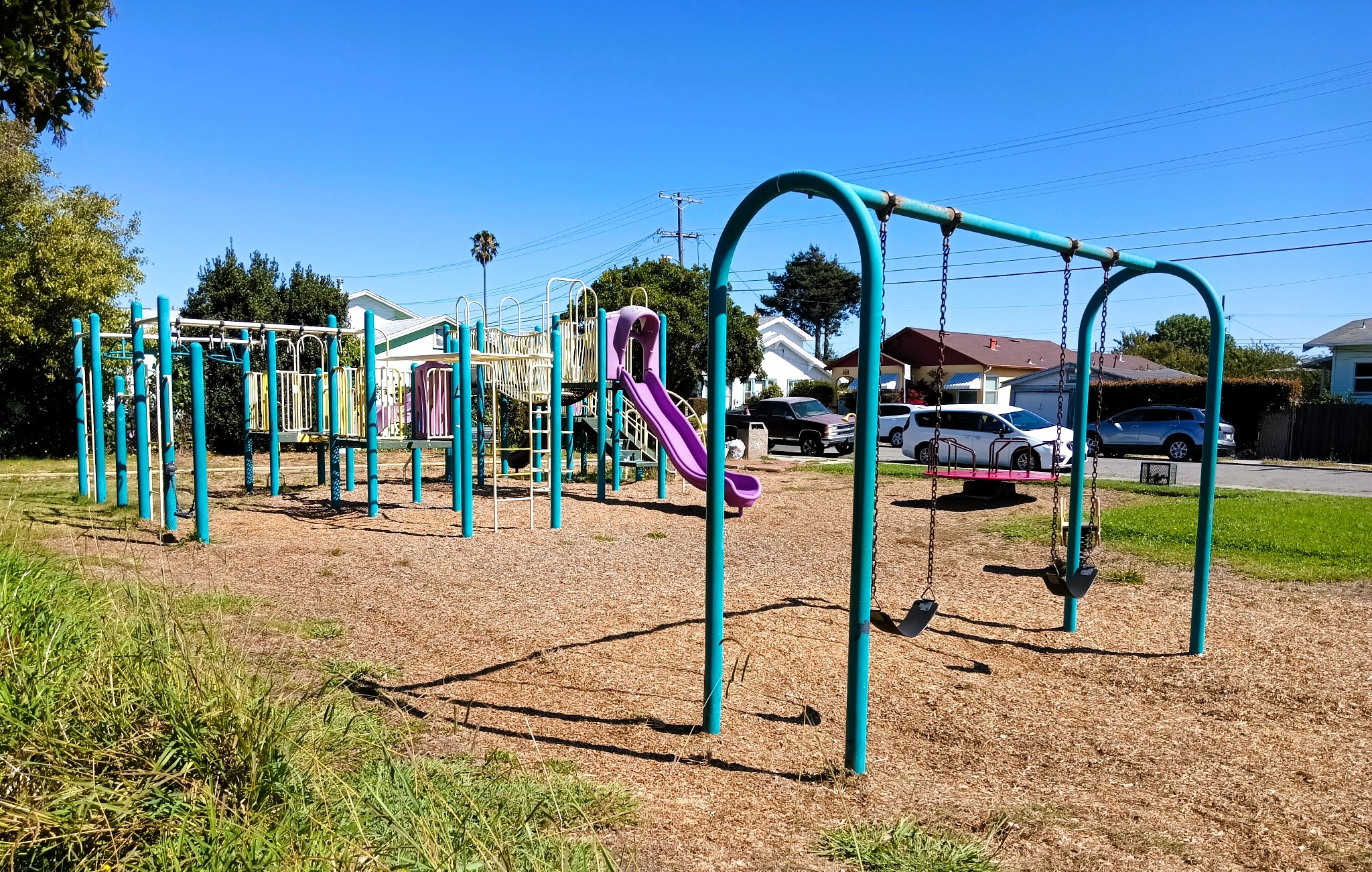
Click to become a Grandview Supporter here, or make a one-time donation here. Grandview is an independent, journalist-run publication exclusively covering Richmond, CA. Every cent we make funds reporting from Richmond's neighborhoods. Copyright © 2024 Grandview Independent, all rights reserved.
